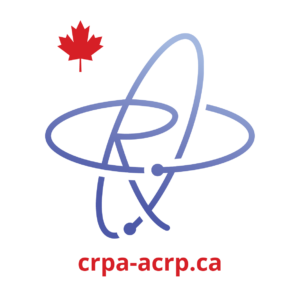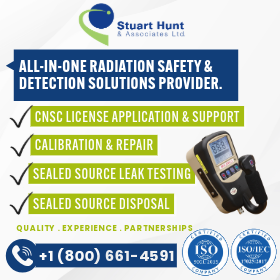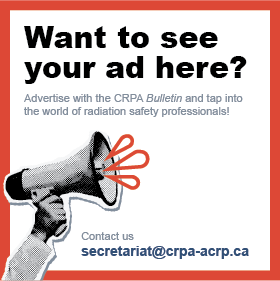Successful Conference Networking – Not Just a Fairy Tale / Faire du réseautage avec succès pendant un congrès – Plus qu’un conte de fées
Résumé
Les organisateurs de congrès, tout comme les congressistes, saluent les avantages du réseautage lors de congrès : en apprendre sur les nouveautés et les meilleures pratiques de leur domaine, élargir leur réseau professionnel et trouver des opportunités de carrière. Mais ces situations surviennent-elles vraiment ou n’est-ce là qu’un conte de fées raconté par des experts en marketing? Dave Niven s’entretient avec Liane Koll, récemment diplômée du programme de radioprotection du Loyalist College. Celle-ci partage son histoire de réussite en matière de réseautage. Il poursuit ensuite sa conversation avec Valerie Phelan, qui a engagé Liane après l’avoir rencontrée lors du congrès 2019 de l’ACRP.
Everyone talks about the benefits of networking at conferences. Organizers and attendees alike espouse the virtues of networking — getting updates on the latest and greatest in the field, expanding your professional network, or just keeping an eye open for new career opportunities. But does that sort of thing actually happen, or is it all just a marketing fairy tale? Well, we’re here to tell you that networking can be even better than you imagined!
Liane Koll had just finished her studies in radiation protection when she attended her first CRPA conference in 2019. By the time the conference was over, she had found out about a job opportunity at Isologic Innovative Radiopharmaceuticals, met the hiring manager, and was well on her way to being formally offered a position . . . which she ultimately accepted. We spoke to both Liane and her new manager, Valerie Phelan, to find out more.
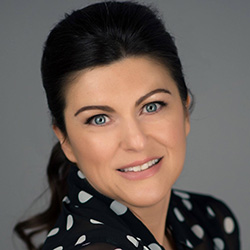
Liane Koll
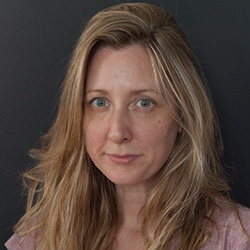
Valerie Phelan
Liane Koll
How did you find out about the CRPA conference and the association?
I was a student in the Loyalist College Radiation Safety program when I decided I wanted to become a member of CRPA. I was looking for an association that is recognized nationally and internationally as a leader and expert in radiation safety, so that I could become a professional member and add CRPA(R) to my resume. Many job listings required certification from CRPA, so this was where I needed to start.
What was your main motivation for registering for the conference?
My main motivation was to write the exam for the CRPA(R) designation. I wanted to obtain all the credentialing I could as a radiation safety officer before I started looking for a job. I was very excited when I passed and was invited to attend the CPRA(R) annual meeting the next day. It was a proud moment to receive my certificate in front of the other members.
What was going through your head when you first met Valerie Phelan and realized she was looking to hire someone?
My first impression of Valerie Phelan (Val) was that she worked hard, and she was dynamic, outgoing, and funny . . . I liked her immediately. I had never met Val before the conference and I didn’t know she worked for Isologic when we met. At the CPRA(R) meeting, I was introduced to the committee as a new member and spoke about my career aspirations; this basically turned out to be my interview with Val.
Do you think meeting your employer at the conference increased your odds of getting the job?
Absolutely. Meeting my employer at the conference increased my odds of getting the job since it showed that I wanted to be an active, involved member of the radiation protection community. I became a recognized professional member after writing the exam, and the timing was perfect.
Did talking to Val in the conference setting give you a better idea not just about the job but also about the work environment, culture, and people at Isologic?
In the conference setting, I had a chance to watch Val engage with other board members and communicate work-related issues. She seemed to be well respected by her peers and have a vast amount of knowledge and experience in radiation safety. If she could multitask work issues, board meetings, and hire staff at the same time, all while maintaining a happy, friendly attitude, I knew she would be an inspiration and I wanted to be a part of her team.
What other benefits do you feel you gained from your conference experience?
I really enjoyed the Chalk River tour, meeting other members at social events, and learning about the many different careers in radiation safety. I look forward to seeing everyone again at the next conference in Winnipeg.
Did you feel any pressure while you were at the conference, knowing potential employers might be there?
I didn’t feel any pressure about meeting potential employers at the conference. It was an opportunity to meet potential employers in a relaxed social atmosphere where I could also participate in continuing education events.
Do you have any advice for other people who may be attending CRPA conferences to network and look for job opportunities?
Write the exam and get invited to the annual CRPA(R) meeting! Attending the conference, passing the exam, and being at the meeting positioned me to be in the right place at the right time for my career.
Valerie Phelan
Did the fact that Liane was attending the CRPA conference have an impact on your decision to hire her?
Yes, coming to the conference shows a certain level of interest and commitment to the practice of radiation safety and a desire for continuous improvement.
As an employer, what are the benefits of interacting with a job applicant in a conference environment rather than just during the interview?
A conference is a somewhat more relaxed atmosphere, and all “shop talk” is geared toward the specifics of the job function that needs to be fulfilled by a candidate.
Do you have any advice for other people who may be attending conferences to network and look for job opportunities?
Not only are conferences a great opportunity for networking and sharing ideas but also a good forum for advertising job opportunities. Candidates get to ask you questions, and you can present your needs better than any paper/electronic advertisement can.
Unfortunately, the timing of conferences may not necessarily coincide with your employer’s hiring needs, but they are still an opportunity to meet people you can keep in touch with and contact later if a need arises.


